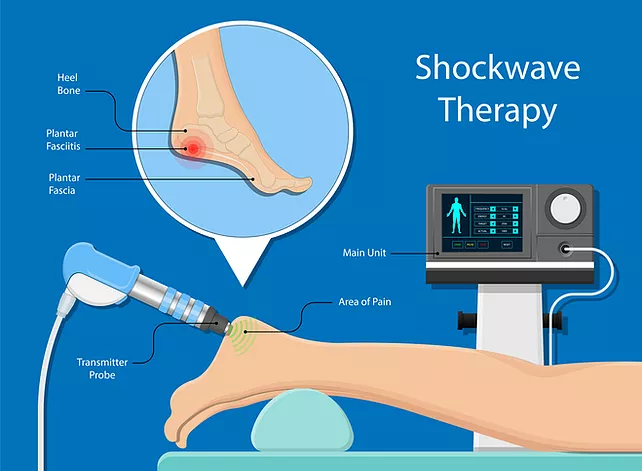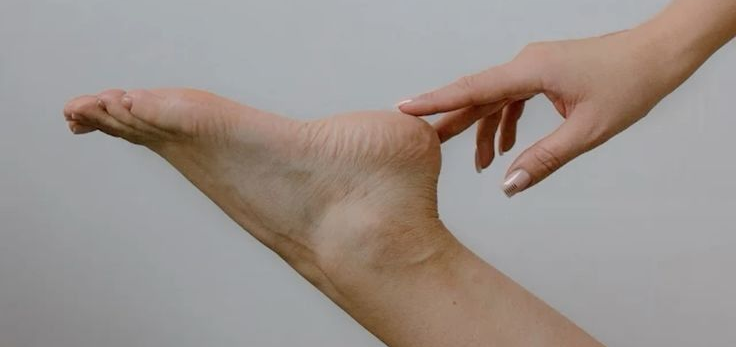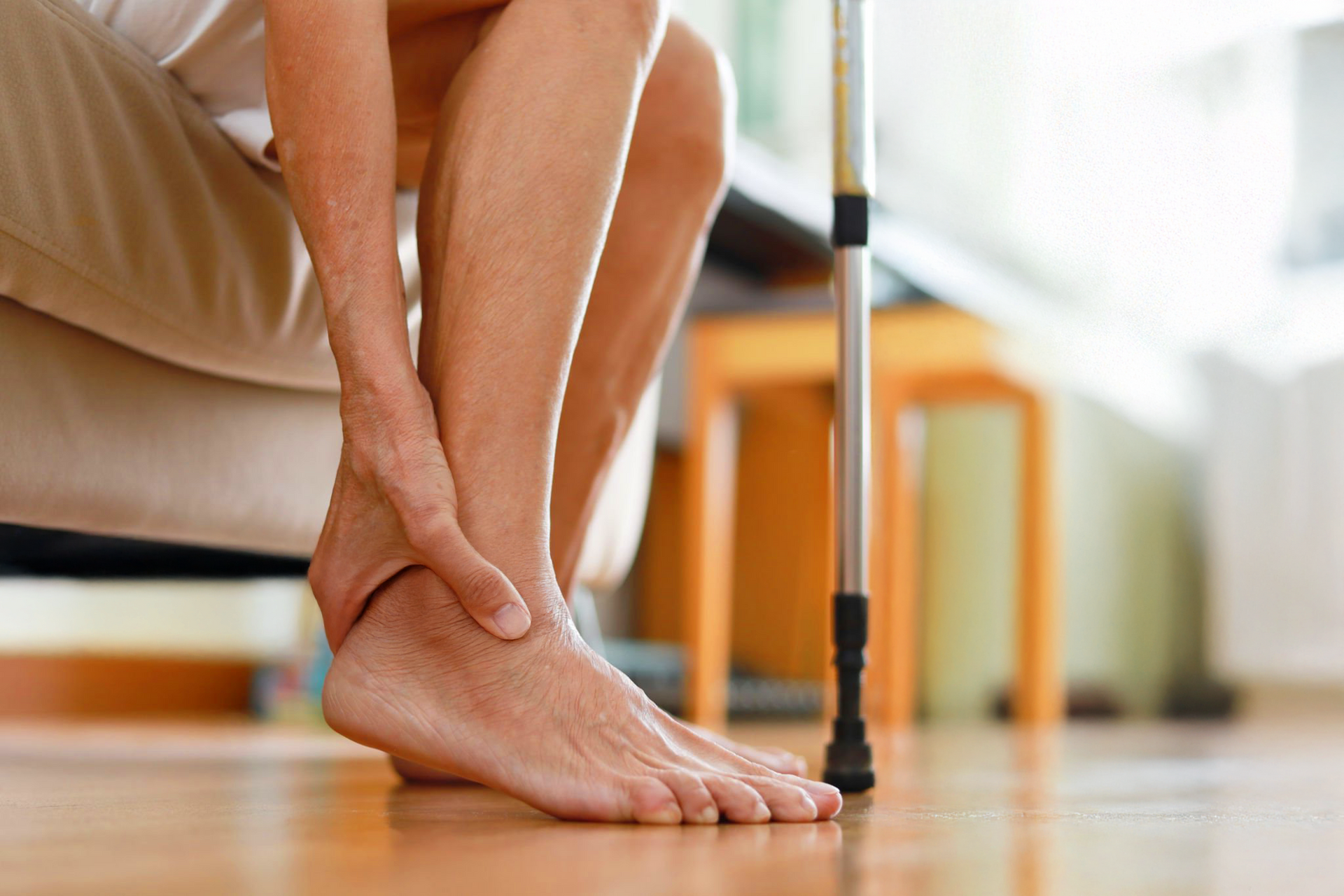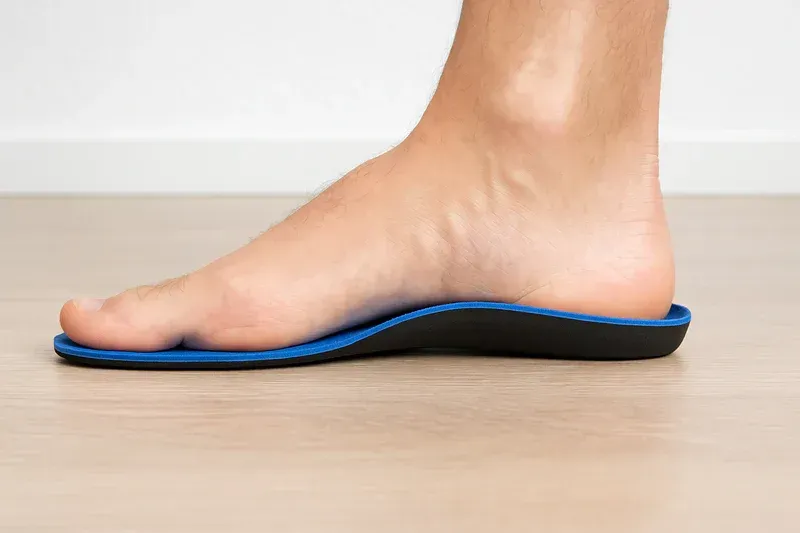New Title
Also known as Extracorporeal Shockwave Therapy (ESWT) (ESWT) is a safe, non-invasive treatment that uses high-energy sound waves to stimulate healing in injured tissues. At our Newcastle podiatry clinic, shockwave therapy is commonly used for heel pain, plantar fasciitis, Achilles tendinopathy, and other stubborn injuries. It works by increasing blood flow, reducing pain, and promoting tissue repair, helping you return to activity faster. This non-invasive treatment method has been found to be effective for a variety of conditions.
In this blog post, we explore how shockwave therapy works and its benefits for individuals with chronic conditions. The treatment involves using high-energy sound waves to create “microtrauma” in the affected tissue, which stimulates the body’s healing process, increases blood flow, and promotes tissue regeneration.

How does shockwave treatment work?
The effects can be seen within several hours following the treatment. The shockwaves migrate, proliferate and differentiate stem cells within the body, leading to tissue healing and regeneration.
The treatment method involves the use of high-energy sound or “shock” waves that are delivered to the affected area to stimulate the body’s healing process.
The shockwaves create “microtrauma” in the tissue. It sounds scary but this is a safe treatment! These microtraumas trigger the body’s healing process increases blood flow and promotes tissue regeneration.
Who is shockwave Treatment Good For?
If you’re an athlete or an active individual, an older adult, or have an acute injury, shockwave therapy may be an appropriate option for you.
Shockwave treatment is usually done on an outpatient basis and takes between 5 to 20 minutes, depending on the severity of the condition.
People who may benefit from shockwave therapy include:
- athletes and active individuals
- individuals with chronic conditions
- individuals with acute injuries.
By varying the spread and intensity of the sound waves, your podiatrist can also target muscle pain and promote the healing of ligaments and tendons. This helps you to return to optimal health after an injury.
Shockwave treatment has been found to be effective for several conditions, including:
- Plantar fasciitis
- Heel spurs
- Plantar plate
- Capsulitis/ bursitis
- Peroneal tenosynovitis
- Insertional Achilles Tendonopathy
- Mid portion achilles tendinopathy
- Medial Tibial Stress Syndrome (shin splints)
- Jumpers Knee - patellar tendinopathy
- ITB Iliotibial band syndrome
Shockwave therapy is a safe and effective treatment method used in podiatry for various musculoskeletal conditions. It can help promote healing, reduce pain and inflammation, and improve overall function and performance.
Shockwave Therapy FAQs
1. Is shockwave therapy painful?
Most people describe shockwave therapy as slightly uncomfortable rather than painful. The intensity can be adjusted during treatment, and any discomfort usually eases quickly once the session ends.
2. How many sessions of shockwave therapy will I need?
On average, patients need 3–6 sessions spaced about a week apart. The exact number depends on the condition being treated and your body’s healing response.
3. How long does it take to see results from shockwave therapy?
Some patients notice improvement within days, while others may see results after a few weeks. The treatment stimulates the body’s natural healing process, so benefits continue to build over time.
4. What conditions can shockwave therapy treat?
Shockwave therapy is effective for plantar fasciitis, heel spurs, Achilles tendinopathy, shin splints, jumper’s knee, and other chronic tendon or ligament injuries.
5. Is there downtime after shockwave therapy?
No. Shockwave therapy is non-invasive, so you can return to daily activities immediately. However, avoiding intense exercise for 24–48 hours is recommended.





